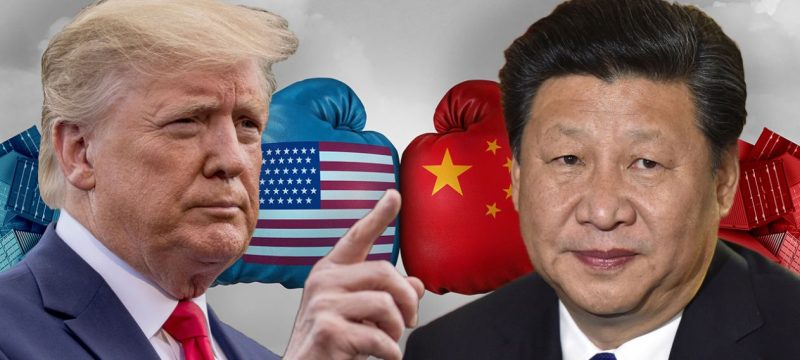China has firmly rejected U.S. threats to escalate tariffs, refusing to be intimidated by what it called “blackmail” from the United States amid an ongoing trade war.
The exchange came after President Donald Trump warned of further tariff increases on U.S. imports from China in retaliation for Beijing’s move to impose reciprocal tariffs. The Chinese Commerce Ministry labeled the U.S. threat a series of mistakes, asserting that if the U.S. persists, China will continue to resist.
Read more: Trump Defends Global Tariffs Amid Market Turmoil: “Medicine” For Trade Imbalance
The European Union also responded, suggesting counter-tariffs on U.S. goods like soybeans and sausages in retaliation for Trump’s global tariff measures, which have shaken financial markets and sparked fears of a looming recession. Stock markets managed a slight recovery after a volatile period, though some markets like Indonesia were severely impacted.
Trump’s tariffs, which could reach up to 50% on certain goods, are designed to revive the U.S. industrial sector, which he claims has been eroded by trade liberalization. He argued that his approach is the only way to reset the economic table, boasting that no other president would take such a bold stance.
In the meantime, the European Commission proposed a 25% counter-tariff on a range of U.S. exports, signaling a willingness to negotiate a compromise with the U.S. at the negotiation table. Despite the tensions, there are mixed opinions about whether these tariffs are permanent or simply a tactic to extract concessions from other countries. U.S. officials have emphasized that the tariffs are part of a broader strategy to reverse trade policies that they believe have harmed the U.S. economy.
At the same time, some business leaders are expressing concerns that the tariffs could have long-term negative effects on the economy. Wall Street executives, such as Jamie Dimon of JPMorgan Chase, warned of the potential damage, while others, like billionaire Elon Musk, have urged for the removal of tariffs, particularly between the U.S. and Europe. The ongoing tariff dispute has raised expectations that the U.S. Federal Reserve may soon reduce interest rates to cushion the economic impact.









